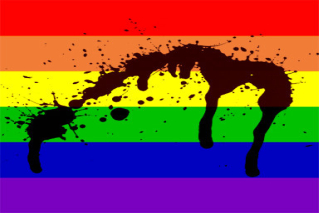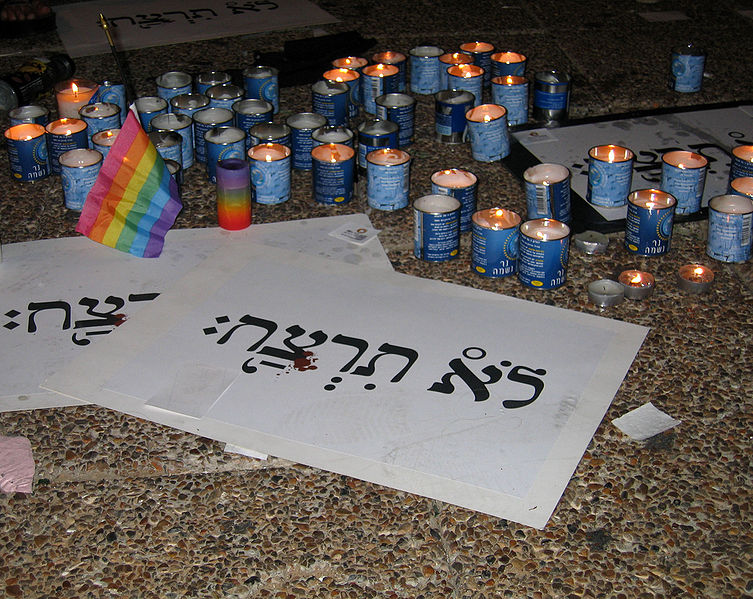 Image CC by Anderwik
Image CC by AnderwikToday, May 17, is the International Day against Homophobia and Transphobia. This date is the anniversary of the World Health Organization’s 1990 decision to remove homosexuality from its list of mental disorders, an important step towards considering freedom of sexual orientation and gender identity as fundamental human rights.
For almost two decades, the Association for Civil rights in Israel (ACRI) has been at the forefront of the struggle to ensure equal rights for the Lesbian, Gay, Bisexual, and Transgender (LGBT) community in Israel. ACRI works through several parallel channels to challenge all forms of discrimination against the LGBT community: litigating before the Supreme Court and the Labor Court, submitting appeals to administrative review boards, proposing and drafting legislation, conducting educational programs and public outreach activities, and playing a central role in coalitions formed to promote the rights of gays, lesbians, transgenders, and bisexuals.
Over the years, ACRI has attained many achievements in promoting LGBT rights in Israel – such as spousal benefits for same-sex partners, prohibiting workplace discrimination because of sexual preference, right to medical treatment for people with HIV, and recognition of adoption by same-sex couples. For a full list of ACRI’s achievements in promoting equality for the LGBT community, click here.
However, homophobia and transphobia are still common in Israeli society. One of the most horrible examples of this took place on 1 August 2009: an armed man entered an LGBT center during the meeting of a support group for teenagers (“Bar-Noar”), and opened fire on the participants. As a result of this shooting, two people were killed – Nir Katz (26) and Liz Trobishi (16) – and 10 others were injured. Almost two years later, the crime has still not been solved and the killer was not yet found.
On this day, which highlights the global struggle for equal rights for LGBT persons and against the shameful and prevalent phenomena of transphobia and homophobia, we would like to share with you the opening words of a lesson plan on LGBT rights (see after the photo), prepared by ACRI following the Tel Aviv shooting of LGBT youth. The full lesson plan in Hebrew can be downloaded from the Ministry of Education’s website.

Candles at a rally to commemorate the casualties of the Bar-Noar shooting in 2009. Photo CC by Talmoryair
“1988 in Israel saw the beginning of a revolution in the treatment of the local LGBT community: lesbians, gays, transgenders, and bisexuals. The change began with the annulment of the law criminalizing consensual sexual activities between men (1988), continued with a law prohibiting workplace discrimination on the basis of sexual orientation (1992), and culminated in a long line of laws and court rulings promoting equal rights for LGBT persons.
These legal breakthroughs were accompanied by a significant change in the public arena: more and more public figures were coming out of the closet and received a relatively accepting public response; starting in 1998, hundreds of thousands of people participated in pride parades across the country; LGBT centers, support groups, and meeting places were established; and gays and lesbians from various minority groups, such as Orthodox Jews and Arabs, were also coming out of the closet and struggling for acceptance within their own communities.
However, the right to equality regardless of sexual orientation or gender identity is still far from being completely realized in Israeli society. One of the most common curses in school is ‘fag,’ and in the eyes of many Israelis being gay, lesbian, transgendered or bisexual is still considered a shameful fact or even a punishable sin.
In this lesson plan, we will try to understand how meaningful was the struggle for equal rights for LGBT people, and we will try to see whether this equality was reached in various arenas – legal, public, social, and so on. We will also discuss the personal attitudes, feelings, and fears of the classroom participants regarding this issue.”







